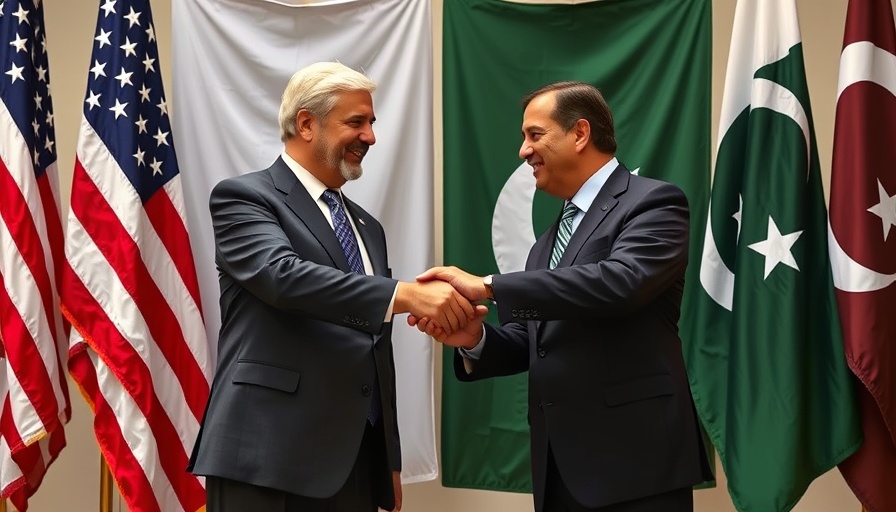
Strengthening Diplomatic Ties: A Call for Cooperation
In a recent development, U.S. Secretary of State Marco Rubio engaged in a crucial phone call with Pakistani Prime Minister Shehbaz Sharif, highlighting the importance of diplomatic cooperation between the two nations. This dialogue serves as a pivotal moment in strengthening diplomatic ties, which are often influenced by global events and shifts in political dynamics. With both nations navigating through complex geopolitical landscapes, fostering communication is essential to addressing shared challenges such as terrorism, regional stability, and economic growth.
The Importance of Military and Security Collaboration
During their conversation, Secretary Rubio reaffirmed the United States' commitment to supporting Pakistan in its fight against terrorism and enhancing regional security. This element of their discussion underscores a long-standing partnership rooted in military collaboration and shared security interests. Historically, the U.S. has provided military aid and training to Pakistan, aimed at combating extremist groups that threaten regional and global stability. As local and international terrorism becomes more sophisticated, such partnerships are integral for mutual security objectives.
Economic Opportunities and Partnership
The conversation also explored economic cooperation, particularly as Pakistan faces economic challenges marked by rising inflation and unemployment rates. With the global economy in flux and facing downturns, both countries can benefit from enhancing trade partnerships and investment opportunities. The potential for U.S. companies to invest in renewable energy projects or infrastructure development in Pakistan aligns with both nations’ interests in sustainable economic growth, particularly as climate change remains a pressing global issue.
Current Global Context: U.S.-Pakistan Relations
As Secretary Rubio navigates these discussions, he must consider the larger geopolitical context surrounding U.S.-Pakistan relations. With tensions between the U.S. and China, and ongoing conflicts in regions like Ukraine and Afghanistan, the role of Pakistan as a strategic ally becomes crucial. The U.S. looks to strengthen its alliances and partnerships in Southeast Asia, which includes addressing concerns arising from Chinese influence in the region. A constructive relationship with Pakistan not only helps address security threats but also strengthens diplomatic ties against rival powers.
Public Reactions and Domestic Implications
This diplomatic engagement also has domestic implications, as public opinion in both countries often shapes foreign policy decisions. In the U.S., there is a growing discourse surrounding international involvement, with some advocating for stronger military aid to Pakistan, while others raise concerns regarding how such aid could be perceived. Moreover, the socio-political climate in Pakistan, intensified by economic issues and public protests, may also influence Sharif's government as they seek to balance foreign relationships with domestic expectations.
Looking Ahead: What This Means for Future Relations
As these conversations unfold, the long-term effects on U.S.-Pakistan relations will depend on the commitments made and actions taken following this exchange. Enhanced cooperation on military and economic fronts can lead to improved stability and security in South Asia. Additionally, tangible benefits from economic partnerships may help bolster public support in both nations for continued collaboration. Anticipating potential outcomes, it’s essential for policymakers and analysts to closely monitor how this engagement translates into real policy initiatives going forward.
 Add Element
Add Element  Add Row
Add Row 



 Add Row
Add Row  Add
Add 


Write A Comment